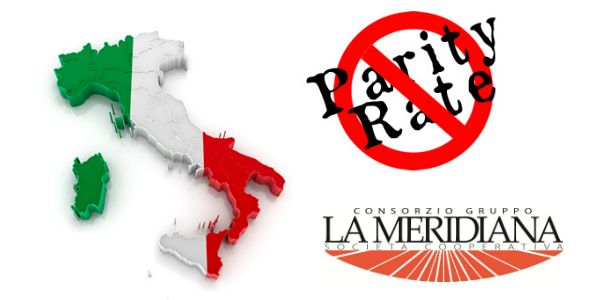Hotel Rate Parity: the Italian Government against egalitarian prices

“Even though you try to take information before buying any article, you will find it somewhere else at a lower price after just you bought it”: these are the words of Arthur Bloch, author of Murphy’s Law in 1977. An assertion that is always booming; the essence about what goes on in trade all along.
Hotel management is certainly linked to consumer habits and needs, but also to competition strategy. That’s not all: to sell a product or a service provision means to study also a whole series of operational activities that must converge in a good and competitive price. Gruppo La Meridiana is the ideal partner for outsourcing services; we also play consultancy work about the best business strategies to achieve success. We have an initial overview of work and we are rich in experiences about any aspect of the growth of a company.
On 7 October 2015, the Italian Chamber of Deputes adopted the draft law “Concorrenza”: it is equivalent of the France bill “Macron”. If this measure will be voted in the Senate too, “Rate Parity” will be officially abolished. We want to explain in this article what Rate Parity has thus far been and advantages and disadvantages brought in with it for hoteliers.
What is Rate Parity?
Rate Parity is literally an “egalitarian price”: it is a trade agreement between hoteliers and OTA (Online Travel Agency) imposing the application of the same price to all housing website portals. This measure initially reassured consumers (apparently): disproving Arthur Bloch, lower prices are almost impossible with Rate Parity. Thanks to this agreement, the big hotel chains had an easy time, not compelled to lower their prices because of competition. Moreover, a hotel chains sell their services on many website and to study prices and advertising for all portals it would have been hard. A price war was prevented but the complaints from small hotels just went through the roof. Small establishments had to work extremely hard to get more reservations by telephone or mail while OTA ascended at the top.
If it is true that OTA shall ensure high visibility to any structure, it is also true that holding some 15% from every booking, OTA force hoteliers to be always one step behind them in revenues and in the development of marketing solutions. So, Federalberghi has stood up for the unanimous outcry on the part of hoteliers against Rate Parity and the Italian Chamber of Deputes adopted the draft law to remove it. The minister for tourism Dario Franceschini said: “France and Italy choose now to ban rate parity and OTA and the titans of online hotel services will have to take this into account. France and Italy together are the biggest world market for tourism”. In this way Italy wishes to restore the independent rate action to hoteliers, with a view to revitalising the internal tourism market and to ensure the survival of the companies. Andrea D’amico, Regional Director of Booking.com in Italy, has different opinions: “If Booking.com limits the investments, Hotels themselves should support them with more costs and risks; this would have a negative impact on the offers and so on consumers too”.
Not just freedom of action, but also responsibility: this seems the new road of the tourism, according to the Government.
Gruppo La Meridiana believes that a coherent business strategy gives better results. We help our partners to follow their objectives through an effective performance. Outsourcing is one of the best ways of achieving the growth and success.



Share Your Thoughts!